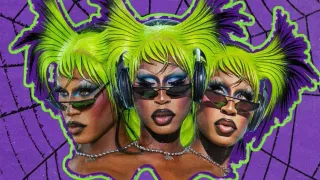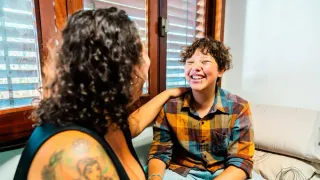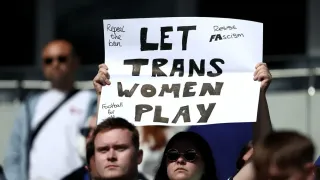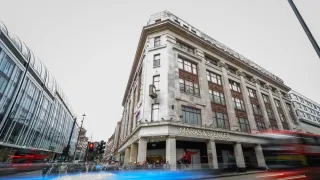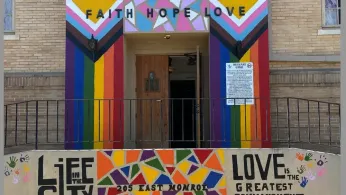
4 hours ago
Austin’s Life in the City United Methodist Church Restored by Allies After Hate-Fueled Vandalism
READ TIME: 3 MIN.
As Austin, Texas, launched its annual Pride Month celebrations on August 1, 2025, Life in the City United Methodist Church—a congregation renowned for its open affirmation of LGBTQ+ communities—became the target of a hate-motivated act. Church members arrived to find homophobic slurs spray-painted on their building, alongside the destruction of their Progress Pride flag, a symbol displayed prominently in support of LGBTQ+ parishioners and the wider community .
The messages, including “Pride was the 1st sin,” were a clear attempt to intimidate and threaten the church’s mission of offering radically inclusive love and support . According to Pastor Glenn Luhrs, this is not the first time Life in the City has been targeted for its progressive stance: “This act was meant to threaten the mission we hold sacred: offering the radically inclusive love of God in Christ for the health and wholeness of mind, body, and spirit,” Luhrs said. “Sadly, this is not the first time hateful rhetoric has appeared on our walls. And it comes at a time when our city is already hurting. Just days ago, a transgender woman was assaulted at Barton Springs. These are not isolated events. They are part of a growing pattern of violence and dehumanization targeting LGBTQIA+ people and other marginalized communities” .
In the face of this attack, the response from church leaders and the broader Austin community was swift and unequivocal. Artistic Director Crystal Paull explained that church members resolved to “meet this with love,” inviting neighbors and supporters to join a cleanup and restoration effort .
The church organized a “creative restoration project” the following Saturday, transforming an act of hate into a celebration of solidarity and resilience. Volunteers—including local residents, fellow faith leaders, and LGBTQ+ activists—helped clean the vandalized walls and installed a new 24-hour Pride mural as a public testament to inclusion and hope. “We are going to continue to do the work of Life in the City which is to be radically inclusive,” Paull said, highlighting the congregation’s unwavering commitment despite adversity .
The vandalism at Life in the City United Methodist is part of a wider trend of anti-LGBTQ+ hostility facing affirming religious institutions nationwide. According to a recent report from the U.S. House Judiciary Committee, incidents of church vandalism—including hate speech and destruction of Pride symbols—have been on the rise, often coinciding with significant LGBTQ+ events or changes in the sociopolitical climate .
Despite these threats, affirming churches like Life in the City remain steadfast in their mission. The church’s response demonstrates the power of community action and allyship in countering hate, with supporters expressing hope that such resilience will inspire similar acts of solidarity elsewhere. As Austin continues its Pride Month celebrations—delayed from the national observance in June for local reasons—the restored church stands as a symbol of enduring faith and affirmation for all LGBTQ+ people .
Life in the City’s leaders have stated that the attack will not deter their ongoing work of outreach and inclusion. A police report has been filed regarding the incident , and the congregation has renewed its invitation to anyone seeking an affirming, supportive spiritual home.
“We’ve heard from our neighbors, our friends, and allies. It’s been an outpouring of support so that’s been uplifting,” Paull shared. As the church reopens with renewed determination, its members hope their example will encourage other communities of faith to respond to hate not with fear, but with radical love and inclusive action .
The restoration of Life in the City United Methodist Church—both in its physical space and its communal spirit—stands as a testament to the LGBTQ+ community’s enduring strength and the vital role of allies in fostering safe, affirming environments for all.

